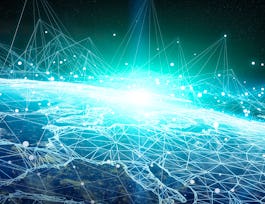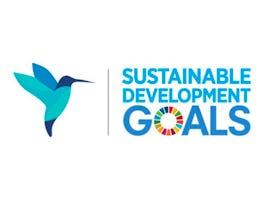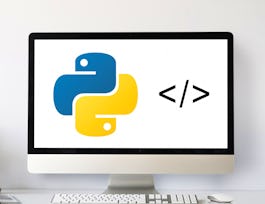In 2015, the UN launched the 17 Sustainable Development Goals (SDGs). Adopted by 193 member states, the goals represent an important international step in setting humanity on a trajectory towards sustainable development. Within this course, you will get a historical overview of how sustainability has been understood, as well as a thorough introduction to the SDGs – what they are, how progress can be measured, and how the SDGs are relevant for the management of the global systems supporting humanity. The course will examine how various societal actors are responding to and implementing the SDGs.


The Sustainable Development Goals – A global, transdisciplinary vision for the future
Taught in English
Some content may not be translated
93,282 already enrolled
(4,346 reviews)
Details to know

Add to your LinkedIn profile
3 quizzes
See how employees at top companies are mastering in-demand skills


Earn a career certificate
Add this credential to your LinkedIn profile, resume, or CV
Share it on social media and in your performance review

There are 3 modules in this course
In this first module, you will be introduced to the concept of sustainability, its roots, and history of development. The framework of the SDGs is outlined in more detail, and we will discuss what sets them apart from previous international agreements, how we can measure progress and how the goals are interconnected. We will touch upon food systems, as an example of how the SDGs are relevant for - and can be implemented in - global systems through international cooperation.
What's included
3 videos3 readings1 quiz1 discussion prompt
In this second module, we will have a more detailed look at the scientific evidence that human activities are influencing the Earth at the planetary level. You will be introduced to the concepts of Anthropocene and Planetary Boundaries. The biosphere (all living organisms or "biodiversity") is arguably just as - or more - important than climate for establishing the environmental conditions we enjoy on Earth, but receives much less attention. This module, therefore, will focus on monitoring and managing human impacts on climate and biodiversity as well as the potential consequences of failing to meet the goals of the SDGs relating to climate and biodiversity.
What's included
3 videos2 readings1 quiz1 discussion prompt
Where the last module focused on the impact of humanity's activities on the bio-physical components of the Earth system, this final section first focuses on the condition of humans, themselves, and the SDGs focusing on the improvement of that condition. You will be introduced to the concept of Doughnut Economics, which builds on the Planetary Boundaries framework. Finally, this module examines current status for implementation and provides examples of how different actors are engaging in global efforts to achieve the goals.
What's included
3 videos4 readings1 quiz2 discussion prompts
Instructor

Offered by
Recommended if you're interested in Governance and Society

The University of Sydney

Erasmus University Rotterdam
Why people choose Coursera for their career




Learner reviews
Showing 3 of 4346
4,346 reviews
- 5 stars
80.89%
- 4 stars
16.50%
- 3 stars
2.20%
- 2 stars
0.16%
- 1 star
0.22%

Open new doors with Coursera Plus
Unlimited access to 7,000+ world-class courses, hands-on projects, and job-ready certificate programs - all included in your subscription
Advance your career with an online degree
Earn a degree from world-class universities - 100% online
Join over 3,400 global companies that choose Coursera for Business
Upskill your employees to excel in the digital economy
Frequently asked questions
Access to lectures and assignments depends on your type of enrollment. If you take a course in audit mode, you will be able to see most course materials for free. To access graded assignments and to earn a Certificate, you will need to purchase the Certificate experience, during or after your audit. If you don't see the audit option:
The course may not offer an audit option. You can try a Free Trial instead, or apply for Financial Aid.
The course may offer 'Full Course, No Certificate' instead. This option lets you see all course materials, submit required assessments, and get a final grade. This also means that you will not be able to purchase a Certificate experience.
When you purchase a Certificate you get access to all course materials, including graded assignments. Upon completing the course, your electronic Certificate will be added to your Accomplishments page - from there, you can print your Certificate or add it to your LinkedIn profile. If you only want to read and view the course content, you can audit the course for free.
You will be eligible for a full refund until two weeks after your payment date, or (for courses that have just launched) until two weeks after the first session of the course begins, whichever is later. You cannot receive a refund once you’ve earned a Course Certificate, even if you complete the course within the two-week refund period. See our full refund policy.




